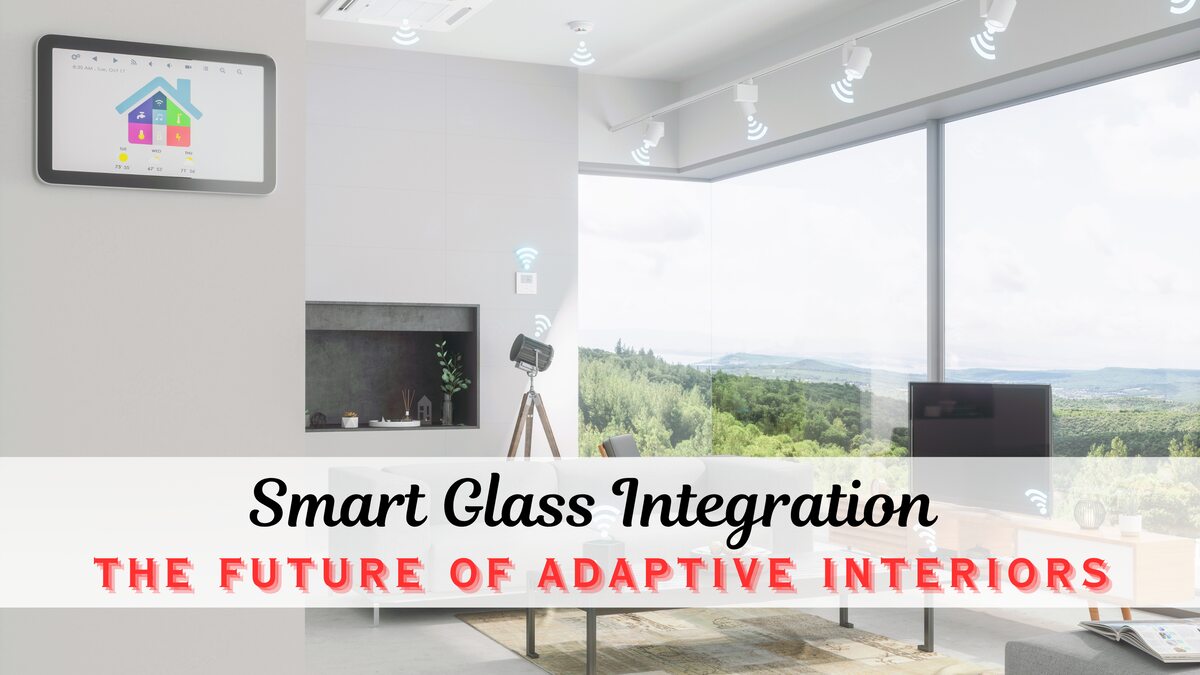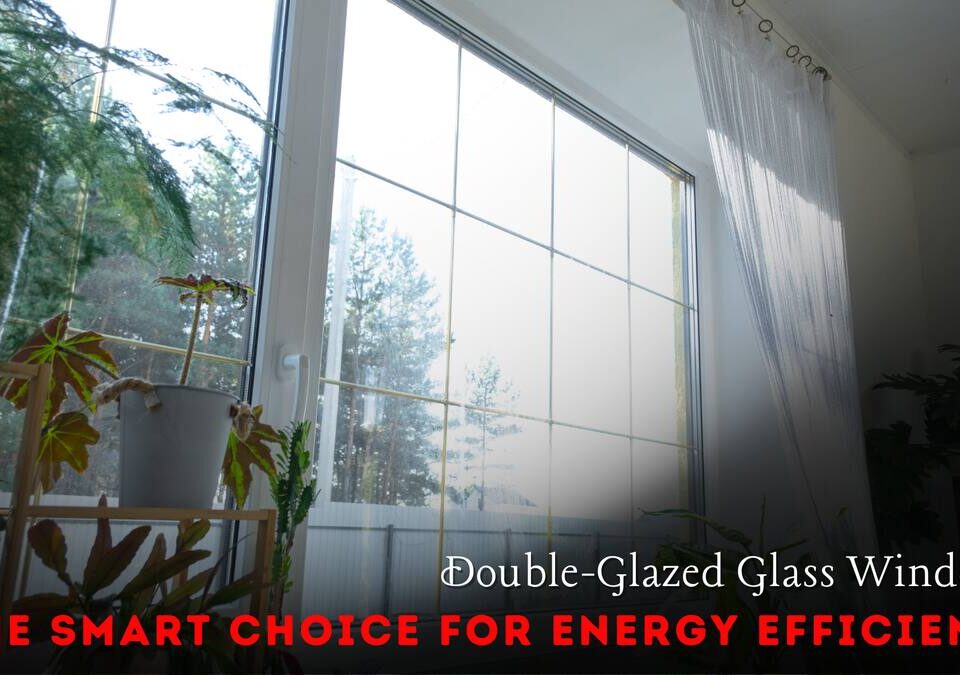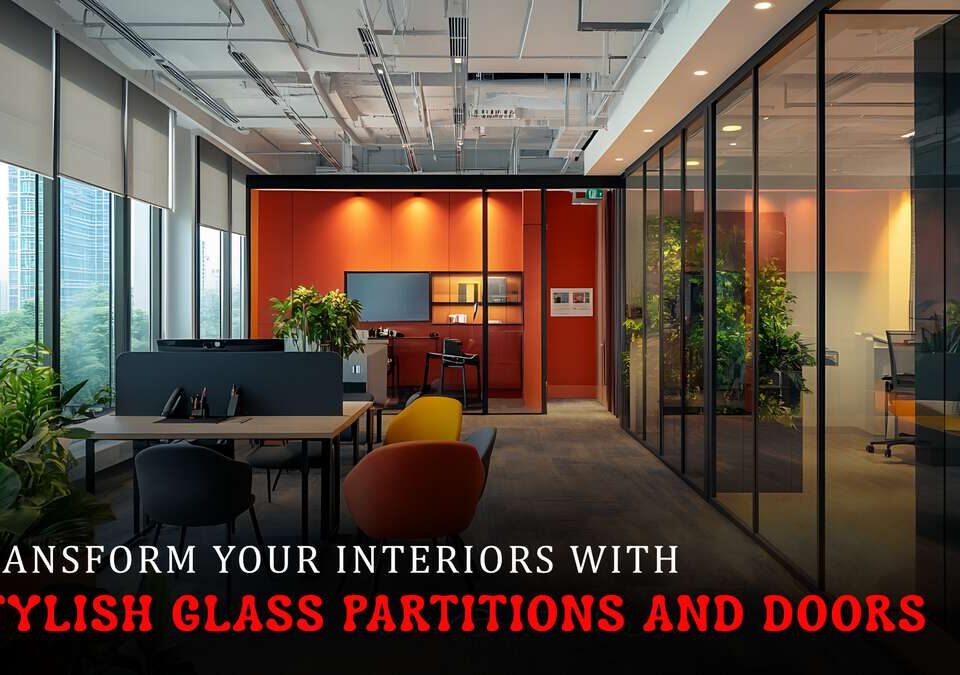
Fire-Rated Glass: A Must-Have for Modern Safety Compliance

Glass Canopies: Aesthetic and Functional Protection for Entrances
Smart Glass Integration: The Future of Adaptive Interiors
Architecture and interior design are entering a new age of innovation. This is how functionality helps you meet aesthetics. One such innovation has been in the field of smart glass technology. This intelligent material is not just about luxury or modern looks; it’s about transforming how we interact with space — whether in homes, offices, hospitals, or automobiles.
This blog explores how smart glass technology is revolutionizing interior spaces, the types of smart glass available, their applications, benefits, and what the future holds for adaptive interiors.
What is Smart Glass Technology?
Smart glass is also known as switchable glass or dynamic glass. In fact, it is a glass that changes the light transmission. It achieves this based on voltage, light, or heat is applied. It can shift from transparent to opaque or adjust its tint to control solar gain and glare.
There are different types of smart glasses in use. Each of these technologies serves unique functions and is suited for different environments. But, all of them with the common goal. They make the spaces more responsive, energy-efficient, and aesthetically dynamic.
The table below should give you an insight into the different types of smart glasses –
| Type of Smart Glass | Activation Method | Transparency Control | Use Cases | Power Required |
| Electrochromic (EC) | Electrical Voltage | Gradual tint change | Offices, windows, facades | Low |
| Suspended Particle Device (SPD) | Electrical Current | Instant darkening/lightening | Sunroofs, meeting rooms, transport | Moderate |
| Polymer Dispersed Liquid Crystal (PDLC) | Electrical Current | Transparent ↔ Opaque | Bathrooms, partitions, residential settings | Moderate |
| Thermochromic | Temperature | Heat-activated tinting | Skylights, sunrooms, energy-saving windows | No (passive) |
| Photochromic | Ultraviolet Light | Light-dependent tinting | Eyewear, secondary windows | No (passive) |
The growing demand for the adaptive glass technology
There are multiple reasons that make adaptive glass an excellent option. These include lifestyle preferences, the rise of remote work, sustainability goals, energy-efficient smart windows, and technological advancements. People want environments that adapt to their needs. They want privacy when needed. This will let them get natural light, and contribute to energy savings.
Smart glass meets these demands by:
- Maximizing daylight without sacrificing privacy
- Reducing dependence on artificial lighting and HVAC systems
- Enhancing comfort and well-being
- Improving space versatility
Where can you use smart glass technology in interior spaces?

Well, based on your creativity and the expertise of the fabricator you choose, you can use smart glasses for multiple purposes.
Residential Interiors
In modern homes, smart glass is being used for:
- Privacy control in bathrooms, bedrooms, and home offices
- Dynamic window shading to regulate temperature and light
- Partition walls that switch from clear to opaque for multi-purpose rooms
- Balcony or sunroom enclosures for year-round usability
Commercial Offices
Offices are being redesigned for flexibility, openness, and well-being. Smart glass supports these goals by:
- Creating transparent meeting rooms that can turn opaque for privacy
- Reducing screen glare and increasing comfort in open-plan areas
- Optimizing lighting and thermal efficiency
- Supporting modern aesthetics and minimalist design
Healthcare facilities
In healthcare, smart glass technology is used to:
- Replace traditional curtains and blinds in patient rooms
- Reduce the spread of germs (traditional blinds can harbor dust and bacteria)
- Improve patient comfort through controllable natural light
- Provide privacy without compromising transparency for staff observation
The at a glance insight into the different applications of smart glass technology can include
| Sector | Applications | Benefits |
| Residential | Bathroom partitions, sunrooms, bedroom windows | Privacy, comfort, smart home integration |
| Commercial Offices | Conference rooms, cubicles, façades | Adaptive lighting, professional aesthetics |
| Healthcare | Patient room dividers, ICU windows | Hygiene, patient dignity, better lighting |
| Retail & Hospitality | Hotel bathrooms, storefronts, VIP areas | Luxury appeal, customizable privacy, branding tool |
| Automotive/Transport | Sunroofs, side windows, privacy screens | Comfort, glare reduction, futuristic aesthetics |
Benefits of using Smart glass technology
Using smart glasses in your residential or commercial projects comes with a multitude of advantages.
Privacy On Demand
No more bulky curtains or permanent partitions. With smart glass, users can enjoy both open visibility and instant privacy with a switch or mobile app. Smart glass eliminates the need for physical blinds, curtains, or frosted films.
This feature is particularly valued in multifunctional spaces and open-plan layouts where permanent partitions would ruin flow and aesthetics. Also, privacy glass solutions for offices are a growing choice for the modern commercial sector.
Energy Efficiency
Smart electrochromic glass for interiors reduces reliance on artificial lighting and HVAC systems by controlling how much sunlight enters a room, thus cutting down on electricity bills and carbon emissions.
In commercial buildings, this translates to lower energy bills and LEED certification points — making smart glass a smart investment in green design.
Improved Aesthetics
Smart glass has a clean, modern look that enhances minimalist designs. It supports open spaces while providing functional division when required.
The adaptability offered by these glasses is essential in both residential homes and corporate environments, especially those embracing modular or flexible interior designs.
Hygiene and Cleanability
Without curtains or blinds that gather dust and allergens, smart glass is a superior solution in sterile environments like hospitals or clinics. Traditional curtains, blinds, or frosted films are breeding grounds for dust, mold, and bacteria. The smart glass reduces this possibility.
This benefit has made smart glass increasingly popular in healthcare, hospitality, and food service industries.
Smart Integration
Smart glass can be integrated with home automation systems and IoT platforms. You can schedule opacity changes, connect it with motion sensors, or adjust it using voice commands.
Smart glass can be integrated into home automation systems. This level of automation contributes to a frictionless user experience and aligns perfectly with smart home trends.
Final Thoughts
The interior design of the future is not just about beauty — it’s about intelligence, adaptability, and sustainability. Smart glass technology is at the heart of this transformation, offering dynamic solutions that evolve with user needs, reduce environmental impact, and redefine what interior spaces can do.
From privacy control and energy savings to advanced aesthetics and multi-functional spaces, smart glass brings a futuristic edge to modern interiors. While adoption is still growing, its potential is boundless — and it’s only a matter of time before it becomes a standard in both commercial and residential construction.
The key to achieve the best standards in this context is to partner with a reliable fabricator. Check us out at Elite Aluminium and Glass Work offer you an excellent degree of performance standards.





